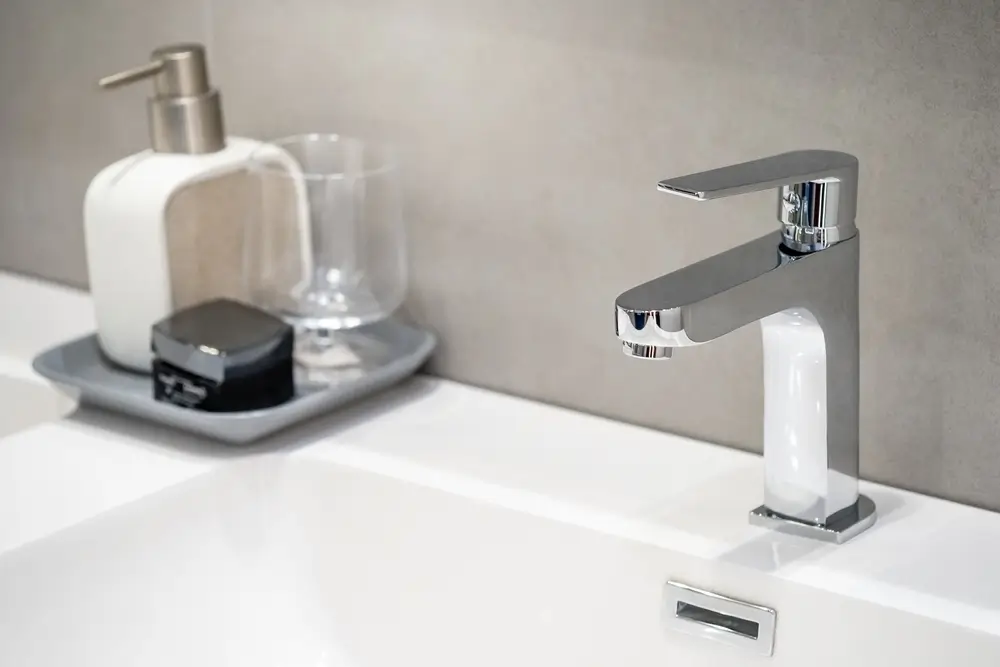
Blog
What Is Hard Water And How To Treat It?

Hard water is a common problem affecting millions of households worldwide. It is caused by abundant minerals such as magnesium and calcium in the water supply, which can lead to various issues, from dry skin and hair to clogged pipes and appliances.
If you have ever noticed a buildup of white residue on your faucets or showerheads or struggled with lathering soap or shampoo while washing, you are likely dealing with hard water.
Fortunately, several ways exist to treat hard water and prevent its adverse effects. In this post, we will explore what hard water is, how it affects daily life, and, most notably, how to treat it effectively.
What Is Hard Water?
The hardness of water is a word used to describe the amount of minerals, particularly calcium and magnesium, present in water. These minerals are dissolved in the water as salts and can significantly impact their quality and suitability for various applications. As the concentration of these minerals increases, the water's hardness also increases.
The hardness of water can be calculated in different units, including parts per million (ppm) or grains per gallon (gpg). Typically, soft water contains less than 1 gpg, while hard water has more than 7 gpg. Water with high levels of mineral range can cause problems such as a buildup of scale on pipes and appliances, soap scum residue after washing, and decreased efficiency in hot water systems.
In areas with a high prevalence of hard water, individuals may need to consider installing a water-softening system to reduce the mineral content.
Do you have hard water?
If you're wondering if you have hard water, a few critical signs can help you determine the answer. Hard water is caused by mineral deposits, specifically calcium and magnesium, which can create problems in your home. Here's how to know if you may have hard water.
- One of the most typical indications of hard water is soap scum buildup. This occurs when the minerals in hard water react with soap to form a sticky residue that doesn't dissolve easily. You may notice this on your shower walls or bathtub surfaces.
- Another sign of hard water is a filmy residue left on dishes and glasses after washing them. This can be frustrating as it causes them to look dirty even when clean.
- Additionally, if you have trouble lathering up shampoo or body wash in the shower, this could be a sign of hard water.
Unfortunately, according to a recent Virginia Tech and Virginia State University research report, 85% of water in the United States is hard water. This finding highlights the prevalence of hard water in the country, which has implications for consumers and businesses.
Is Hard Water Bad For You?
Hard water is a common issue in many homes and businesses. The minerals in Hard water do not harm your health; they can negatively impact your plumbing system, appliances, clothing, and skin.
Here are some ways hard water can be bad for you:
- Health Problems: Hard water's potential effects on health have been a significant concern for many years. Scientific studies show a correlation between hard water and various health issues, such as gastrointestinal disorders and potential diseases that affect the cardiovascular, nervous, urinary, and hematopoietic systems.
- Skin irritation: When showering or bathing with hard water, the minerals present can lead to skin dryness and irritation.
- Hair damage: Over time, hard water can lead to dryness and brittleness of hair, causing damage.
- Plumbing issues: The buildup of mineral deposits in pipes due to hard water can lead to clogs and other plumbing problems.
- Reduced effectiveness of soaps and detergents: The presence of minerals in hard water can impede the ability of soaps and detergents to generate sufficient lather, leading to a decrease in their cleansing efficacy. Consequently, the buildup of soap scum residue can occur on various surfaces, including dishes, clothes, and other locations.
- Appliance damage: Minerals in hard water can negatively impact the effectiveness and durability of household appliances such as water heaters, dishwashers, and washing machines. Consequently, energy consumption may increase, and regular maintenance or replacements may be required.
- Staining and scaling: Hard water can cause mineral stains and scaling on faucets, sinks, and showerheads. These deposits can be unsightly and difficult to remove.
- Impact on water quality: An excessive amount of minerals in hard water can harm the taste and odor of the drinking water, thereby reducing its desirability for consumption.
- Difficulties in cleaning: Due to the mineral content, cleaning surfaces, glassware, and utensils with hard water can leave behind streaks, spots, and residue.
Treating Hard Water:
Numerous techniques exist to address complex water and minimize its adverse impacts. Below are some of the prevalent methods:
- Boiling: Boiling is the most common method for treating hard water. This is because boiling water helps reduce hardness by removing some minerals that create hard water, such as calcium and magnesium ions. Once these minerals are removed, the water becomes softer.
(Note: This process is only temporary since once the boiled water cools down and settles, any suspended particles will settle back into the water, increasing its hardness level again)
- Water softeners: Water softeners systems are equipment designed to eliminate minerals that cause water hardness, including calcium and magnesium. They usually employ ion exchange or salt-based mechanisms to substitute the hard minerals with sodium or potassium ions, producing softened water.
- Water conditioners: Water conditioners modify the characteristics of hard water minerals, similar to how water softeners operate. Various technologies, such as template-assisted crystallization and electromagnetic fields, prevent mineral buildup and decrease their tendency to stick to surfaces.
- Reverse osmosis: Reverse osmosis systems employ a specialized membrane to eliminate impurities, such as minerals, from the water. These systems are highly efficient in generating purified water that exhibits reduced hardness.
- Distillation: The distillation process entails heating water to its boiling point and then cooling the resulting steam to separate it from impurities. This method effectively eliminates minerals and generates distilled water with low hardness levels.
- Chemical additives: Polyphosphates and other chemical additives can prevent mineral buildup and scale in pipes and appliances. By sequestering the minerals, these additives prevent them from precipitating and causing problems.
- Magnetic or electronic descalers: The efficacy of devices that utilize magnetic or electronic fields to modify the mineral structure and minimize scale formation is still being debated.
Final Verdict:
In conclusion, hard water is a common problem affecting many residential and commercial properties. High levels of minerals such as calcium and magnesium in water sources cause it. In addition, hard water is known to have several adverse effects on plumbing systems, appliances, and overall water quality.
Taking necessary steps toward treating hard water benefits your property and ensures access to clean and healthy water drinks for you, your family, and your customers. Contact a certified professional today to schedule an assessment of your property's current water quality status.

